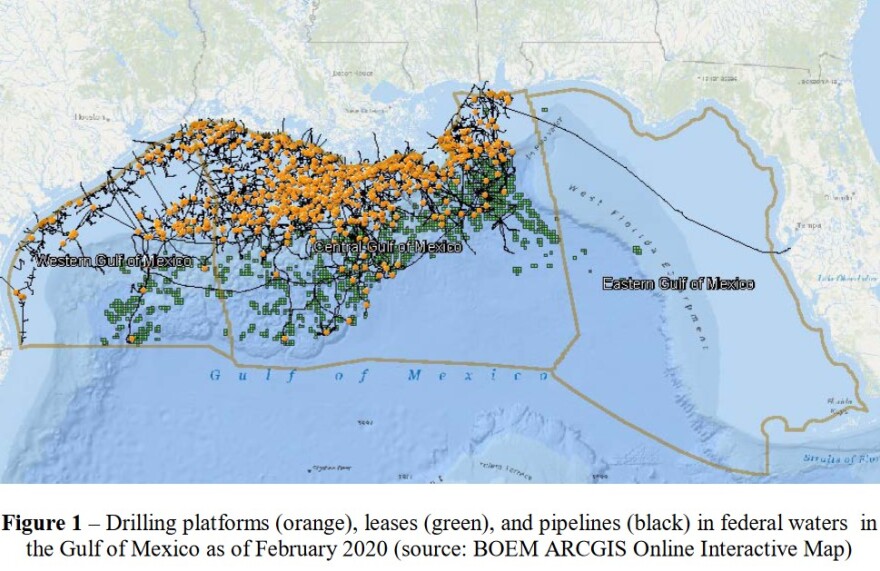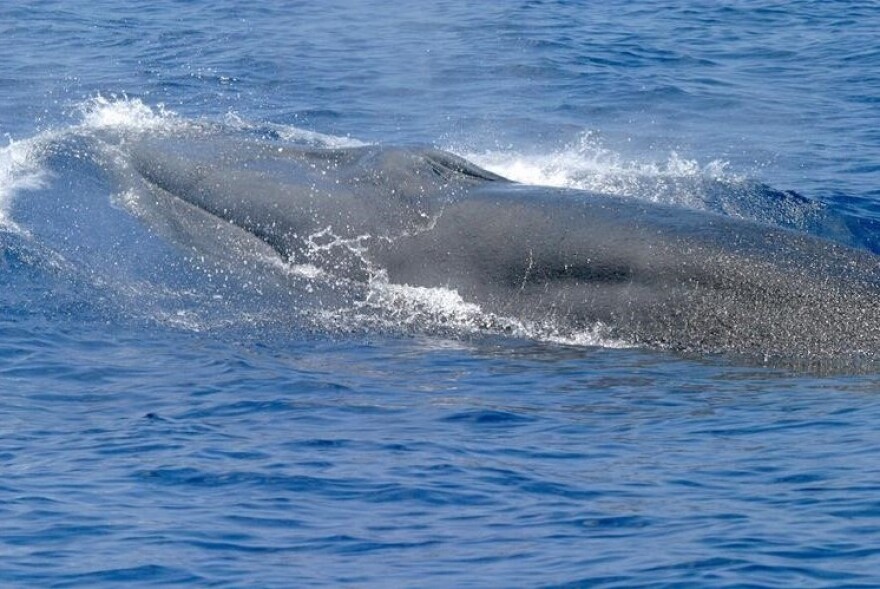A temporary settlement agreement was reached in federal court that will mean a speed limit of 10 knots for all vessels associated with oil and gas extraction in the western Gulf. It also excludes new leases for drilling in about nine million acres, mainly off the coasts of Louisiana and Texas. This is intended to be a stop-gap move to protect whales from the effects of oil and gas drilling.
Steve Mashuda is the managing attorney of the Oceans program for the environmental group Earthjustice, one of the plaintiffs.
"These measures are a great first step, they will better protect Rice's whales from the effects of oil and gas drilling, but they're not going to be the thing that that solves a problem," Mashuda said. "We need longer term protections. And that's what we're going to keep advocating for over the next year or more - however long it takes - to make sure that 51 Rice's whales turns into something that's a lot more than that, and or kids and grandkids will be able to see them in the Gulf of Mexico."
He said the 2010 BP oil spill killed or seriously harmed 20% of estimated Rice's whales.
The agreement is designed to better safeguard Rice’s whales during the 13-month period that the case is on hold while federal agencies reevaluate the legally binding biological opinion governing Gulf oil and gas activities:
- The Bureau of Ocean Energy Management (BOEM) will exclude Rice’s whale habitat from any lease sales that occur while the lawsuit stay is in effect.
- BOEM will require future oil and gas leaseholders to reduce the risks of vessel strikes to Rice’s whales throughout their northern Gulf habitat. Any lease sales held during the stay will include a requirement reducing oil-and-gas-related vessel speed to 10 knots when traveling though the whale’s defined habitat.
- BOEM will notify existing oil and gas leaseholders of the threat that vessels pose to Rice’s whales and remind operators of their responsibilities to avoid “take” (harming, killing, or harassing) of protected species when seeking permits. It will also outline vessel speed reductions and measures operators should take in the whales’ habitat.
"Ship strikes are one of the major threats to this species, because of the 51 animals that are estimated to be left of this species, they all live in a very identifiable band of habitat," Mashuda said. "And they tend to feed and rest in the upper part of the water column, very close to the surface. And of course, being large whales, they're not the swiftest creatures on the planet. And so they are particularly susceptible to being hit by vessels."





